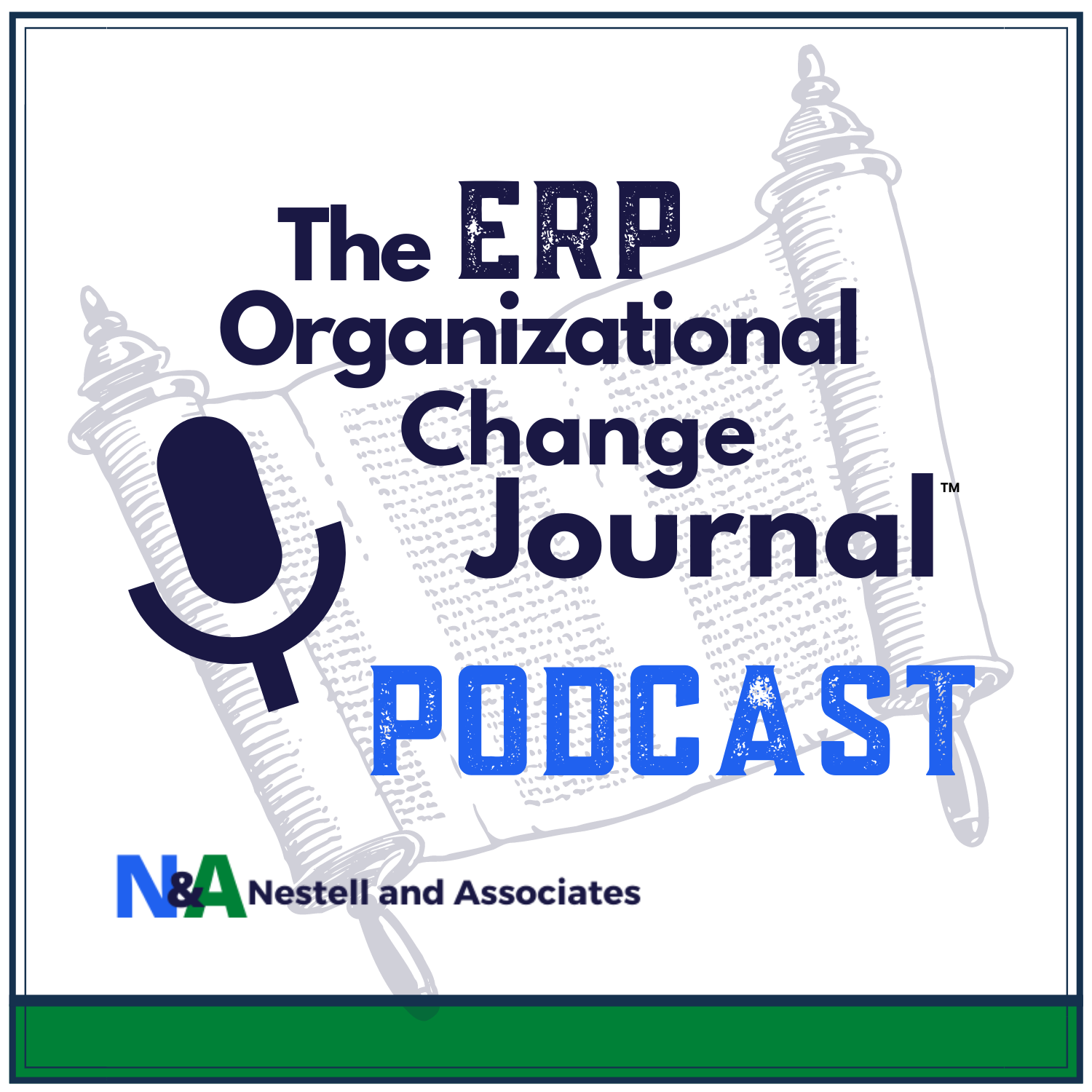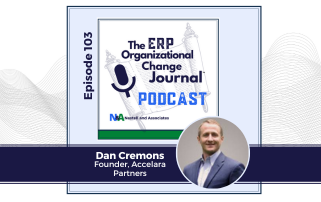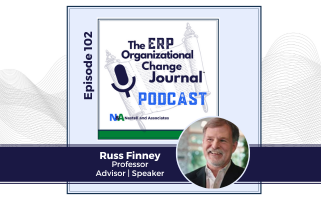In This Episode
In this episode, we will discuss “ERP Project Management Competencies and Project Complexity” With Dr. John M. Clark.
This week we discuss project management competencies, project complexities, the “edge of chaos”, transformational leadership, concepts of project management risk and uncertainty, and the latest information from Project Management Institute (PMI) regarding the Project Management Body of Knowledge (or PMBOK) 7th edition. Additionally, Dr. Clark will share his work in which he studied “The Extent Project Management Competencies and Project Complexity Predict Project Success”.
Stream this Episode Here and Subscribe on all Major Platforms
We want this podcast to be the most useful podcast you listen to. And we need your help! Please leave us a podcast review!
Dr. John M. Clark
Dr. Clark has over twenty years of experience as a management consultant, project manager, director, chief of staff, and chief information officer.
More about Dr. Clark
He has extensive experience in both the public and private sectors in the fields of project management, information technology, procurement, and budgeting. Dr. Clark has taught Graduate Project Management Thesis, Principles of Project Management, Risk Management Procurement and Contracts, PMP/CAPM Preparation, and Research, Writing and Methodology.
Dr. Clark is also a certified Project Management Professional (PMP), a Certified Government Chief Information Officer (CGCIO) and a Six Sigma Green Belt. He is a member of the Project Management Institute, the Project Management Institute-Keystone Chapter, the Academy of Management, the Institute for Operations Research and the Management Sciences, and the Greenleaf Center for Servant Leadership. He is also certified in CITI research. In addition to his doctoral pursuits and teaching, Professor Clark is actively pursuing publishing his research in peer-reviewed scholarly journals.
Episode Resources & Links
Episode Highlights & More about this Episode: ERP Project Management Competencies and Project Complexity
02:36 What were the 2 specific research questions you wanted to investigate?
03:45 What were the results of the two specific questions you investigated?
07:40 As a practitioner, what are the Implications for practice based on your research and work?
21:03 What was one of the reasons why you decided to pursue your Ph.D., to begin with?
27:06 What do you think the implications are for project managers as a discipline, as a role, and as a function to sit with the implications of PMBOK 7
33:12 Are you saying despite PMBOK 7, there are still going to be those traditional linear approaches to PM and project managers that want to stay the old course?
38:50 The Hybrid approach to project management, can you touch on having flexibility around the process?
42:32 Any recommendations for further research?
48:32 Based on your years of experience and your research, what would you say to ERP organizational change practitioners? What advice would you give?
Mentions
Project Management Institute PMBOK 7th Edition Facts PDF
Kawasaki, G. (2004). The art of the start: The time-tested, battle-hardened guide for anyone starting anything. Penguin. https://www.google.com/books/edition/The_Art_of_the_Start/-gXlwJnnNoEC?hl=en&gbpv=1&printsec=frontcover
Müller, R., Geraldi, J., & Turner, J. R. (2011). Relationships between leadership and success in different types of project complexities. IEEE Transactions on Engineering Management, 59(1), 77-90 https://ieeexplore.ieee.org/abstract/document/5730485
Aga, D. A., Noorderhaven, N., & Vallejo, B. (2016). Transformational leadership and project success: The mediating role of team-building. International Journal of Project Management, 34(5), 806-818. https://www.sciencedirect.com/science/article/abs/pii/S0263786316000314
Agha, W. A. (2019). Transformational leadership as a critical success factor for enterprise resource planning system implementation. Open Access Library Journal, 6(02), 1. https://www.scirp.org/html/90866_90866.htm
Bass, B. M., & Avolio, B. J. (Eds.). (1994). Improving organizational effectiveness through transformational leadership. sage.https://books.google.com/books?id=_z3_BOVYK-IC&printsec=frontcover#v=onepage&q&f=false
Petrie, N. (2014). Vertical leadership development–part 1 developing leaders for a complex world. Center for Creative Leadership, 1-13. https://kairosconsulting.com/wp-content/uploads/2016/06/CCL-VerticalLeadersPart2.pdf
Northouse, P. G. (1999). Leadership: Theory and practice (p. xxiii). E-Content Generic Vendor. https://www.google.com/books/edition/Leadership/HJ08DwAAQBAJ?hl=en&gbpv=1&dq=Northouse+Leadership&printsec=frontcover
Dr. Clark’s Linkedin article https://www.linkedin.com/pulse/navigating-edge-chaos-john-clark-ph-d-candidate-pmp/
Why be another unfavorable ERP statistic if you can avoid it?
More Episodes
Human Capital in PE-Backed Companies: Strategies for Leadership and Talent Management
Human Capital in PE-Backed Companies: Strategies for Leadership and Talent ManagementEpisode Overview - PE-backed Human Capital Strategies Today’s episode centers on the pivotal role of human capital in PE-backed companies, emphasizing how strategic leadership and...
ERP Organizational Change: Technology Strategy
ERP Organizational Change: Technology Strategy and Keys to SuccessEpisode Overview - Technology Strategy In general, at the highest level of categorization, there seems to be consensus on the importance of people and culture, informational technology, and project...
AI and Private Equity Synergy: Fueling Business Transformation
AI and Private Equity Synergy: Fueling Business TransformationEpisode Overview - AI in PE Strategies In this episode, we explore how AI and Private Equity synergies are fueling business transformations and reshaping investment strategies and operational efficiencies....






0 Comments